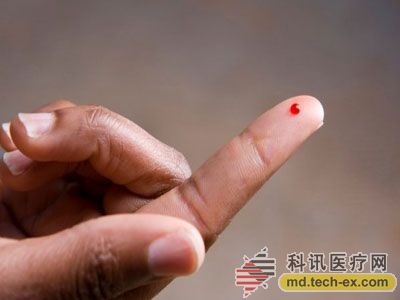Release date: 2016-01-14

For 795,000 Americans who suffer from a stroke each year, a quick-response diagnostic test may be available soon.
Scientists at the Cornell University Baker Institute for Animal Health (BIAH) have created a system that can diagnose a stroke in less than 10 minutes with a single drop of blood, compared to current tests that rely on CT scans and complete blood tests. It took four hours before and after to get the results much faster. Counting minutes by patient status will cost $34 billion a year, and this new device will change lives.
Obviously, the trend of modern medical diagnostic equipment is small, simple and fast. Roy Cohen, lead author of the study, explained: "Three-quarters of stroke patients are suffering from ischemic stroke - cerebral vascular occlusion. In these cases, time is precious. Because even if there is a good drug, it must be It takes only three or four hours to get the symptoms to be effective. When someone recognizes these symptoms, goes to the hospital, and lie down in the emergency room, you have no time to fully absorb the drug."
A faster diagnosis can reduce the risk of permanent damage to people with ischemic stroke, which is one of the main causes of long-term disability.
Stroke kills an American every 4 minutes, and for those survivors, it can lead to long-term fatigue and vision problems. The technology of BIAH is basically the detection of the biomarkers in the blood by enzyme-linked nanoparticles when a stroke occurs, and the discovered molecules are converted into light.
The researchers focused on neuro-specific enol (NSE), a biomarker found in the blood of stroke patients, and testing the light they produce to diagnose a stroke.
Recently, the development of micro-medicine is obvious to all. From the AIDS to the cancer, the hand-puncture test, for their accuracy, people still have a sense of distrust. Recently, the Theranos controversy, the Silicon Valley Laboratory promised to use a drop of blood to diagnose a large number of health problems in a few hours was found to greatly exaggerate its function, and the suspicion of the accuracy of these rapid diagnostic tests began to prevail.
A new study also shows that the content of each drop of blood will vary greatly, further questioning whether the analysis of this new model really deserves to be touted as a medical miracle. The study found that only five or more acupuncture blood collection, combined analysis can get accurate results.
The BIAH stroke test, at least demonstrating the original theory, shows that this technique can be used to test the deep state of humans and animals, from heart disease to traumatic brain damage. Cohen is currently analyzing the latter's expected results, which may be a good proof that the critics are wrong.
“This system can detect multiple biomarkers in a targeted manner,†said Alex Travis, associate professor of BIAH, a co-author of the paper. “This is the power of this technology. You can assemble a microfluidic card based on this technology to detect Ten biomarkers in different health states, each read the same: light."
The team plans to develop clinical testing of stroke detection technology with the help of a private company, which will eventually be used in hospitals.
Source: Omelette
Zhuhai Mingke Electronics Technology Co., Ltd , https://www.mingke-tech.com